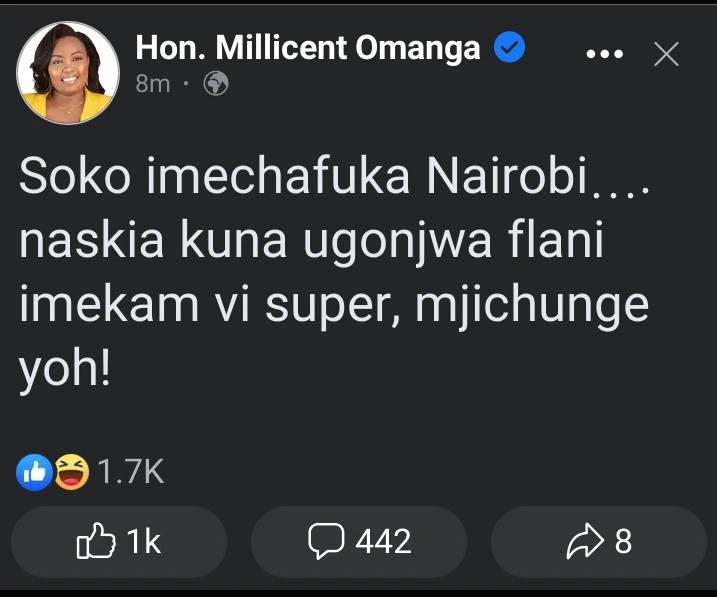Super gonorrhea ‘Jakadala’ which devastated Migori county back in 2020 has now struck the capital Nairobi – this according to Kenya Medical Research Institute (KEMRI).
KEMRI said the strand of the sexually transmitted disease (STD) resistant to most drugs used to treat common gonorrhea is now in Nairobi.
The finding described by experts as of concern means that many Kenyans are carrying an almost incurable infection that can cause significant health problems including damage to the reproductive system.
The drug-resistant gonorrhea was isolated from a sample taken from one of the 24 sex workers in Nairobi last year.
Amina Abdullahi a researcher from KEMRI who made the discovery said most of the sick women did not even have the clinical symptoms of gonorrhea.
The drug-resistant gonorrhea was first reported globally by World Health Organization (WHO) at the height of Covid-19 pandemic in 2020.
WHO reported that overuse of antibiotics to treat Coronavirus resulted in the more rapid spread of a type of antibiotic-resistant gonorrhea.
Super gonorrhea does not respond to the normal first-line treatments, making it particularly dangerous and uncomfortable for those afflicted.
According to WHO, super gonorrhea results when the bacteria that causes gonorrhea, Neisseria gonorrhoeae, develops a high level of resistance to the antibiotics normally used to treat the infection: azithromycin and ceftriaxone.
The super gonorrhea was first reported in Kenya in Migori county in 2020 and locals christened it ‘Jakadala’.
Social media platforms were ablaze with reports of ‘Jakadala’, with some people wrongly posting images of people suffering from other STIs.
Former nominated senator Millicent Omanga has now warned Nairobians to be careful following KEMRI report about the outbreak of Jakadala in the capital city in 2023.
“Soko imechafuka Nairobi… naskia kuna ugonjwa flani imekam vi super, mjichunge yoh!” Omanga posted on Facebook.





